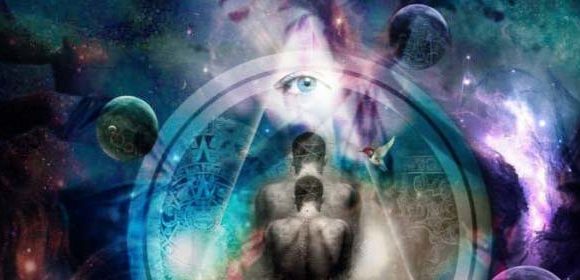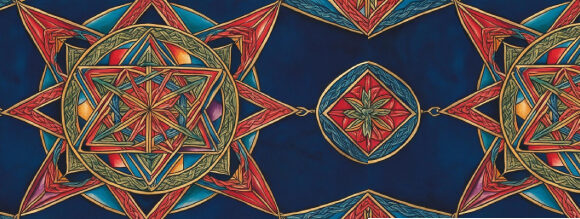Since the dawn of human existence, the quest for meaning has been one of our most profound and driving forces. This timeless search manifests in diverse ways, from structured religious doctrines to the esoteric realms of mysticism and spirituality. Each tradition, whether ancient or modern, seeks to answer humanity’s deepest questions: Why are we here? What is the purpose of life? Is there something beyond our physical existence?
This article will explore man’s search for deeper meaning, focusing on how different religious, esoteric, and spiritual beliefs approach these ultimate questions. While each path may take on different forms, they all reflect a shared human yearning for transcendence, understanding, and unity with the divine.
The Quest for Meaning in Organized Religion
Religious traditions are often the first place individuals turn to for guidance in their search for meaning. Across the globe, religious beliefs have shaped cultures, civilizations, and personal lives, offering frameworks that provide both moral guidance and existential purpose.
Christianity: In Christianity, the search for meaning is intricately tied to a relationship with God, through Jesus Christ. Christians believe that life’s purpose is found in living according to God’s will and embracing Christ’s teachings of love, compassion, and redemption. Eternal life and salvation are seen as the ultimate fulfilment of this quest, providing comfort and hope that transcends the temporal world.
Islam: Similarly, Islam emphasizes submission to the will of Allah (God). For Muslims, the deeper meaning of life is achieved through following the principles outlined in the Quran, living a righteous life, and engaging in acts of worship and charity. The concept of the afterlife, where one’s deeds are weighed, gives meaning to the earthly life and provides an ultimate goal of spiritual reward.
Hinduism: In contrast, Hinduism offers a more cyclical view of existence. The search for meaning in Hinduism often centres on understanding the nature of the self (atman) in relation to the cosmic order (Brahman). Through the principles of karma and reincarnation, individuals strive for moksha, or liberation from the cycle of birth and rebirth, as the ultimate purpose of life.
Buddhism: Buddhism, though rooted in Hinduism, takes a different approach by focusing on the cessation of suffering. The Buddha’s teachings guide followers toward enlightenment (nirvana) through the Four Noble Truths and the Eightfold Path. The deeper meaning of life, according to Buddhism, is not found in external rewards or eternal life but in the liberation from desire and attachment, which are seen as the root causes of suffering.
These religious traditions, though diverse in their practices and doctrines, share a common feature: they provide clear frameworks for understanding life’s purpose and the potential for transcendence, often through a connection with a divine being or cosmic law.
Esoteric Traditions: Unlocking Hidden Knowledge
Beyond mainstream religions, esoteric traditions have long fascinated those who seek a more intimate, hidden understanding of life’s mysteries. These traditions often involve initiation into secret wisdom, mystical experiences, and symbolic interpretations of the universe.
Gnosticism: One of the most ancient esoteric traditions is Gnosticism, which emerged in the early Christian era. Gnostics believe that the material world is a prison for the soul, created by a lesser divine being. Salvation, for the Gnostic, comes through secret knowledge (gnosis) of one’s divine origin and the transcendent God beyond the material world. This inward search for knowledge is key to understanding one’s true purpose and escaping the cycle of ignorance.
Kabbalah: In the Jewish mystical tradition of Kabbalah, the universe is seen as a complex system of divine emanations known as the Sefirot. Kabbalists seek to understand these emanations and how they connect the individual soul to God. Through meditative practices, study of sacred texts, and esoteric symbolism, Kabbalah provides a map for spiritual ascent and deeper comprehension of life’s meaning within the divine order.
Alchemy: Often misunderstood as merely a pursuit to turn base metals into gold, alchemy is fundamentally an esoteric spiritual discipline. The true alchemical quest is the transformation of the self, turning the “base” nature of the soul into the pure “gold” of enlightenment. Alchemists saw their work as a spiritual practice aimed at uniting the physical and spiritual realms, achieving divine wisdom and immortality.
These esoteric paths challenge conventional ways of thinking about life and death, urging followers to look beyond the visible and tap into hidden, cosmic truths that promise a deeper understanding of existence.
Modern Spirituality: Personal Exploration and Universal Connection
In the modern era, spirituality has increasingly moved away from the confines of traditional religious systems. Many people today seek meaning through personal exploration, blending elements of different traditions or pursuing individual spiritual experiences.
New Age Spirituality: The New Age movement, which emerged in the late 20th century, is a prime example of this personal exploration. It draws on a wide range of influences, including Eastern philosophies, astrology, energy healing, and meditation. The emphasis in New Age spirituality is on personal transformation and the belief that individuals can access higher states of consciousness and divine energy through their own efforts. The meaning of life, in this view, is often seen as an evolutionary journey toward self-realization and unity with the universe.
Mindfulness and Meditation: Another hallmark of modern spirituality is the growing popularity of mindfulness and meditation, which are often adopted outside of their religious contexts. These practices encourage individuals to live in the present moment and cultivate inner peace, offering a means of exploring life’s meaning without the need for structured beliefs. For many, the search for meaning is no longer about finding answers but experiencing the fullness of life as it is, with all its complexities and mysteries.
Eclectic Belief Systems: Many modern seekers take an eclectic approach, blending elements from various spiritual traditions. Yoga, shamanism, tarot, and other practices are often combined in a personalized spiritual framework that allows individuals to create their own path to meaning. In this approach, the journey itself becomes the goal, with meaning unfolding through experience and self-discovery.
Conclusion
The search for deeper meaning is as old as humanity itself, manifesting in countless ways across religious, esoteric, and spiritual traditions. Whether through the structure of organized religion, the secret wisdom of esoteric paths, or the personal exploration of modern spirituality, the quest for purpose and transcendence remains a fundamental part of the human experience.
In the end, each path offers its own answer to the age-old question of why we are here, and for many, the journey itself is the true source of meaning. Through exploring the various traditions available, we come to understand that life’s purpose is not a one-size-fits-all answer but a multifaceted and deeply personal experience.








